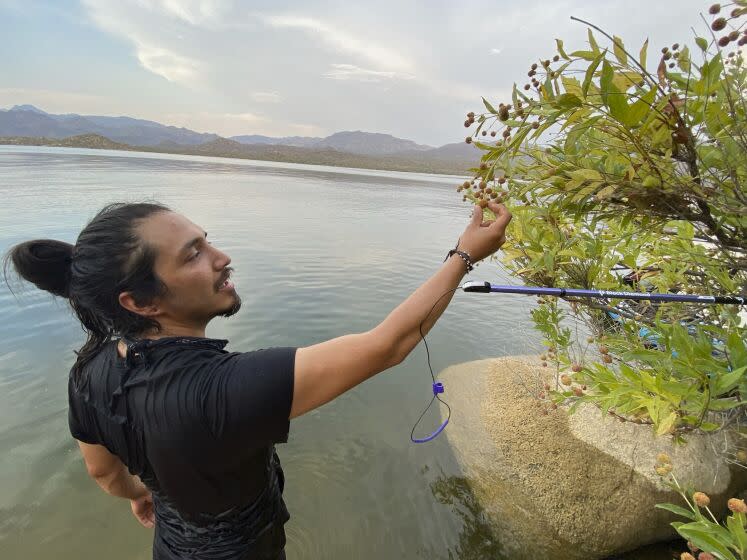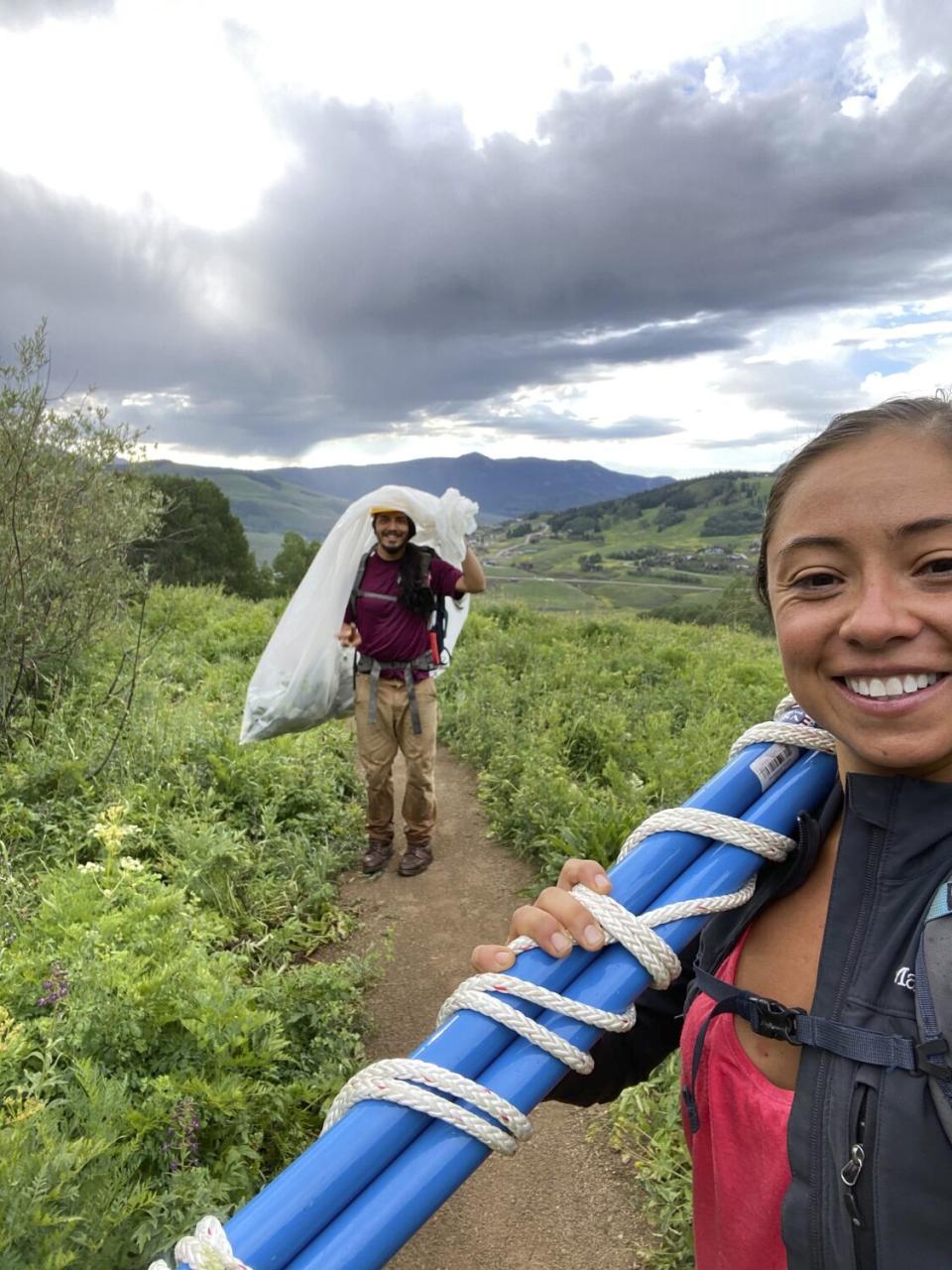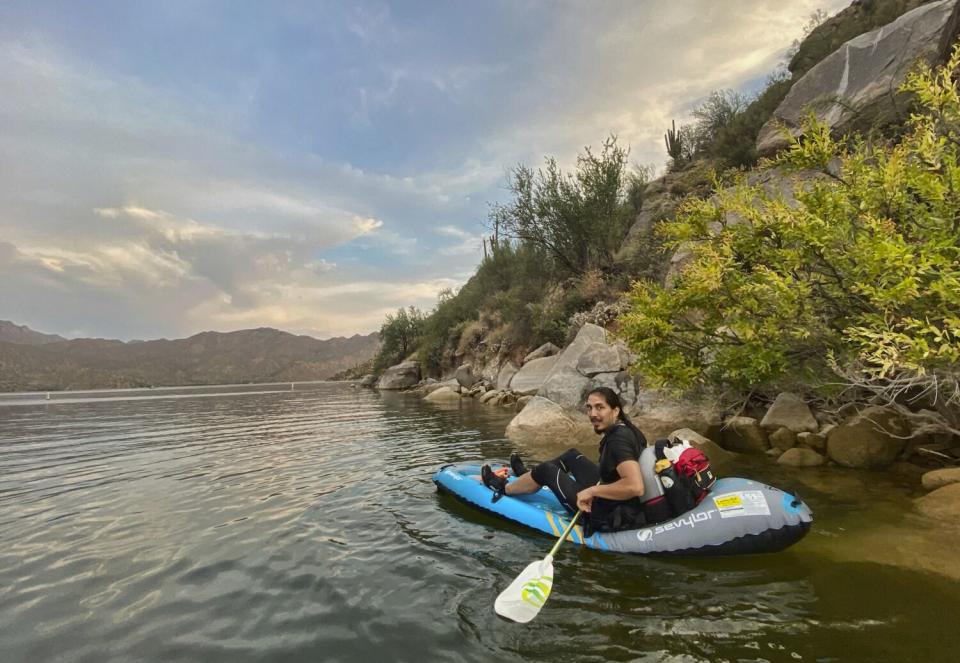UC Berkeley graduate student gunned down on research trip to Mexico

For Gabriel Trujillo, the trip wasn't just about searching for plants — it was about finding his roots.
The 31-year-old botanist and UC Berkeley doctoral student regularly journeyed to foreign lands for work. This month, it was the Mexican state of Sonora, where he hoped not just to advance his academic pursuits but reconnect with his Opata Indigenous heritage by visiting his ancestral lands.

It meant working away from his fiancee, Roxanne Cruz-de Hoyos, whom he met through Berkeley's Integrative Biology graduate program. Still, Trujillo was excited. When he spoke to Cruz-de Hoyos the morning of June 19 from his Airbnb in the Sonoran town of Tónichi, he said he planned to go solo into the field to look for cephalanthus occidentalis, a flowering plant also known as honeybells or common buttonbush.
His body was found in a ravine three days later, not far from the car he had driven from his home in Oakland. He had been shot and killed, Mexican authorities said.
"He was a true naturalist," Cruz-de Hoyos said. "He cultivated life every moment with his hands."
Cruz-de Hoyos and Trujillo traveled across the U.S. and other parts of the globe, collecting plant samples as part of their studies. They were seldom apart when doing their field research and shared a home with hundreds of plants they grew from seeds.
But she was unable to make the trip to Sonora because of the demands of her own research.
"If we're not together, we would always share our location, so I can see where he is," Cruz-de Hoyos said in an interview Friday. "But by the afternoon, by the evening of June 19, I hadn't heard from him. I knew something was wrong."
She contacted the person who rented him a room. They said Trujillo's belongings were there and that his car was gone.
Cruz-de Hoyos flew down to Sonora and contacted the authorities. She filed a missing person's report and notified Trujillo's advisors, friends and family.
The Sonora prosecutor's office said Trujillo was found on a stretch of road leading to the town of Yécora. Prosecutors referred to Trujillo only by his first name, but said they found his 2009 black BMW wagon and other forensic evidence at the scene. Officials determined he was shot days earlier.
Cruz-de Hoyos identified Trujillo, and his father, Anthony, accompanied his body back to the United States.
"Thank God I was able to retrieve him, because a lot of people do not get to have that," Anthony Trujillo said in an interview.
The last time he had spoken to his son was the day before he went missing: Father's Day.
"He was trying to learn more about his ancestors, about where we come from," Trujillo said. "He had plans to cultivate a garden in that area."
Trujillo was in the fourth year of his doctoral program at UC Berkeley. University officials said they learned of his death June 23.
"Local police authorities are investigating," UC Berkeley said in a statement. "This is heartbreaking news and campus officials have reached out to his family to offer support and assistance."

Faculty members in the Department of Integrative Biology called Trujillo "a passionate ecologist, field biologist, and advocate for diverse voices in science."
"He was a member of a tightly knit group of graduate students in ecology and his partner is also a member of our campus community. We all face a world that is less bright for this loss," faculty members said in an email to students and staff.
During his trip, Trujillo planned to study the common buttonbush to see if it could be used for wetland habitat restoration. As an Indigenous person, he felt he was meant to be a good steward of the land, Cruz-de Hoyos said. The two participated in ceremonies around missing or murdered Indigenous persons, especially the Two-Spirit community — people who identify as having both a masculine and feminine spirit.
"I think that's something he would want to mention," she said.
In an obituary prepared by his family, Trujillo is described as having a "passion for nature and culture and a relentless drive for science. His deep appreciation for the natural world guided him to explore the wonders of the outdoors. He found solace in the beauty of nature, always eager to learn and protect the environment he held so dear."
In a GoFundMe to raise funds for funeral services, Cruz-de Hoyos wrote "Nican Ca," which translates to "here is" or "he is here" in the Nahuatl language.
"I think we both found in each other a kind of mirror, a very special connection that neither of us had found before," she said.
The U.S. Bureau of Consular Affairs has advised travelers to reconsider travel to Sonora, which borders Arizona, due to crime and kidnappings. The agency's travel advisory says the border state is a key location for drug cartels and human trafficking networks, with widespread violence.
About 1,000 miles east of Sonora in another border town, four Americans were caught in a drug cartel shootout in the city of Matamoros earlier this year. The four Americans were kidnapped shortly after they crossed the border, according to Mexican officials. Mexican authorities rescued two of the Americans and found the bodies of the two other victims in a wooden shack in the outskirts of Matamoros.
The group said they traveled from South Carolina to Mexico for cosmetic surgery.
Trujillo had traveled across the globe as a field researcher, including to other parts of Mexico. But this trip seemed different to Anthony Trujillo because his son would be alone for most of the trip.
But "there was nothing that was going to stop him."
"He loved plants, he loved bugs, and he loved people. He loved life. He was always trying to get other people, his younger family members, out into nature, to stomp around with him," he said. "He had a magnetic smile. I'm just so proud of him."
Times staff writers Kate Linthicum and Cecilia Sánchez Vidal contributed to this story.
Sign up for Essential California, your daily guide to news, views and life in the Golden State.
This story originally appeared in Los Angeles Times.

